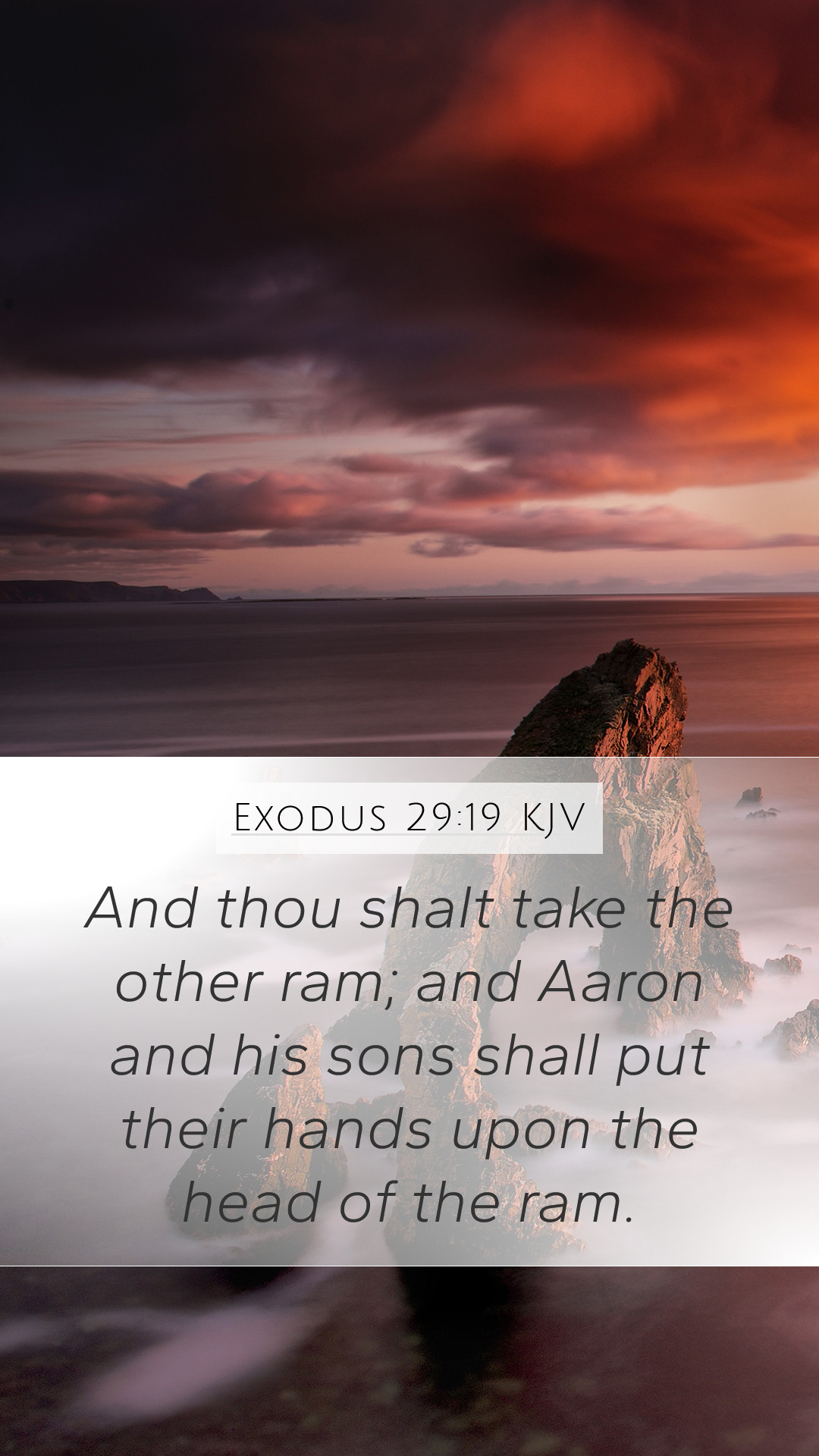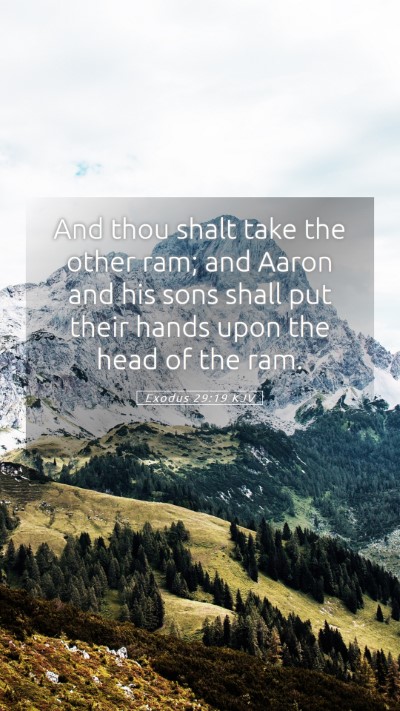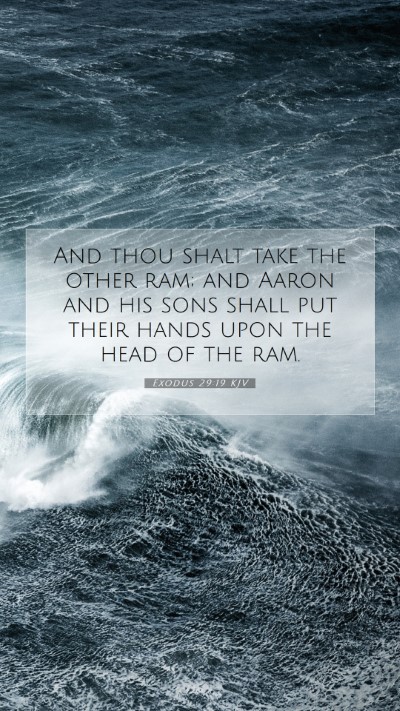Understanding Exodus 29:19: A Comprehensive Bible Verse Commentary
Exodus 29:19 states: "You shall take the other ram, and Aaron and his sons shall lay their hands on the head of the ram."
Overview of the Verse
This verse is part of God's instructions to Moses regarding the consecration of Aaron and his sons as priests. The ritual involving the ram signifies the solemn and sacred transition into their roles as mediators between God and the people of Israel.
Bible Verse Meanings
The act of laying hands on the ram symbolizes the transfer of sin and the intent to atone, indicating the gravity of the priestly role. As noted in public domain commentaries:
-
Matthew Henry: He highlights the significance of this act in acknowledging the ram as a substitute for the people’s sins.
-
Albert Barnes: He notes that this ceremony illustrates both the necessity of divine appointment to the priesthood and the delegation of the people's sins to the sacrificial ram.
-
Adam Clarke: Clarke emphasizes the ritual's importance in establishing the priesthood's unique role in God’s service, marking it as a pivotal act of dedication and consecration.
Bible Verse Interpretations
Various interpretations can be drawn from Exodus 29:19:
-
Symbolism of Sacrifice: The ram represents sacrificial atonement, a foreshadowing of the ultimate sacrifice of Christ.
-
Historical Context: Understanding the cultural practices of ancient Israel helps us grasp the significance of animal sacrifices as a divine command for holiness.
-
Leadership and Responsibility: The laying of hands signifies not only acceptance of responsibilities but also the impartation of authority to lead spiritually.
In-depth Scripture Analysis
This verse fits into a larger narrative about the establishment of worship and the sacrificial system. It places emphasis on:
- Divine ordination of the Aaronic priesthood.
- The divine requirement for atonement through ceremonial practices.
- Preparation for intercessory roles within the community of Israel.
Biblical Exegesis of Exodus 29:19
The exegesis of this verse reveals deeper layers of meaning related to covenant theology. By observing the ritual, one can see:
- God’s initiative in establishing a relationship with His people.
- The seriousness of sin and the need for atonement.
- The preparation of priestly mediators to facilitate divine interaction.
Applying Bible Verses to Daily Life
Exodus 29:19 serves as a reminder of the importance of accountability and the role of spiritual leadership. Today’s readers can draw on this passage to:
- Reflect on the responsibilities of leaders in their communities.
- Recognize the importance of personal sacrifice and atonement in their own spiritual journeys.
- Embrace the call to spiritual service within their church or community settings.
Related Bible Cross References
- Leviticus 8:22-23: Further instructions on dedicating priests through sacrifices.
- Hebrews 5:4: Discussion on the priesthood and its divine appointment.
- Isaiah 53:6: Foreshadowing of the Lamb who takes away the sins of the world.
Conclusion
In summary, Exodus 29:19 encompasses a rich tapestry of meaning, highlighting the seriousness of divine appointment and the sacrificial system established to maintain holy relationship with God. By understanding the implications of this verse, individuals can gain valuable Bible study insights and apply these teachings in their lives.


